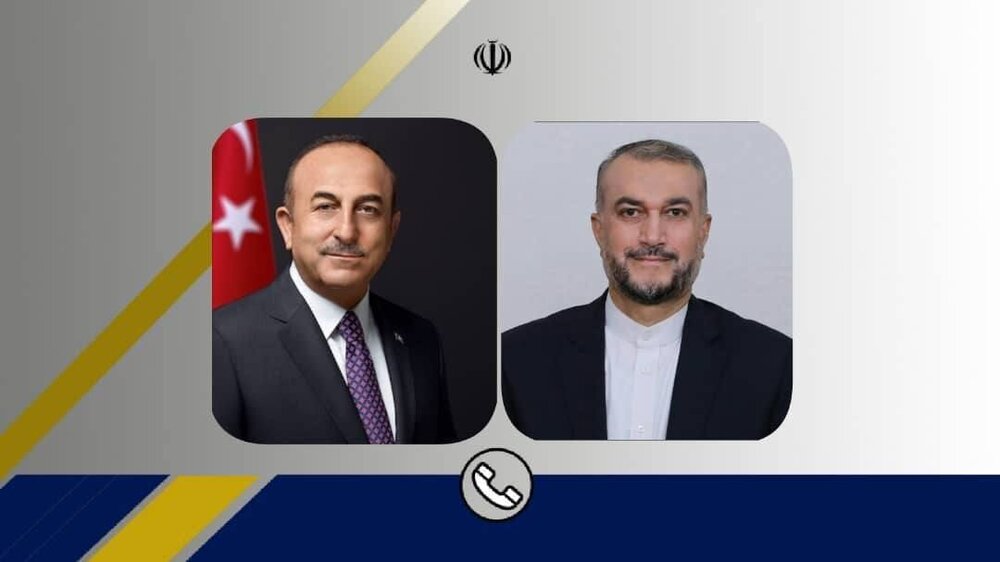Amir Abdollahian and Cavusoglu discuss flareup near Turkey's border with Syria

TEHRAN- In a phone conversation on Tuesday night, Turkish Foreign Minister Mevlut Cavusoglu and his Iranian counterpart Hossein Amir Abdollahian reviewed the rising military tension near the Turkish border with Syria.
Amir Abdollahian maintained that Tehran is prepared to utilize its resources to assist resolve the issues between the two neighbors and that Tehran is aware of Turkey's security worries near the Syrian border.
The top Iranian diplomat added, “We understand Turkey’s security concerns and stress the need to address them. The key to the problem, however, requires continuation of security talks between the two countries and not ground military operations. These steps will not help resolution of existing problems; but would cause losses and complicate the situation.”
The Iranian foreign minister added his country is ready to assist in finding a diplomatic solution to the ongoing disputes between Ankara and Damascus.
For his part, Cavusoglu briefed Amir Abdollahian on his nation's stance about the situation in Syria and underscored the necessity for additional dialogue.
Turkey has raised the prospect of conducting ground operations in northern Syria and Iraq populated by Kurds.
“Ankara determines the duration, scope, and limitations of the Turkish Armed Forces' operations. The procedure can start whenever it is convenient—tomorrow, next week, even later. The Turkish military and intelligence are evaluating the situation,” Ibrahim Kalin, a spokesperson for the Turkish president, stated on Tuesday.
He remarked that during the regional air campaign, Ankara worked in concert with Moscow.
“These concerns relate to our plans for air force operations and are now being examined. How did we enter Tell Rifaat's airspace? We talked about it (with Russia) and coordinated our efforts. We strategize, converse, and act,” said Kalin.
The official emphasized that his nation is still in communication with Damascus.
The Kurdistan Workers' Party (PKK) militant group and Syria’s Kurdish People's Protection Units (YPG), which form the core of the so-called Syrian Democratic Forces, have been blamed by Ankara for the November 13 bombing at a busy avenue in the center of Istanbul. Kurdish militia have denied the accusation.
Recep Tayyip Erdogan, the President of Turkey, hinted that Ankara intends to send in ground troops to battle Kurdish forces positioned in Syria across the border.
Erdogan stated in a speech on Tuesday that "we have been bringing down terrorists with our planes, cannons, and rifles for a few days."
“With the help of our tanks and men, God willing, we will root out all of them as quickly as possible,” he pointed out.
In defiance of the sovereignty and territorial integrity of the Arab nation, Turkey has sent troops in Syria.
In October 2019, militants supported by Ankara were sent to northeastern Syria as Turkish armed forces started a long-promised cross-border incursion in an open attempt to drive YPG fighters out of border regions.
Syrian President Bashar al-Assad and other top officials have declared that Damascus will retaliate against Turkey's escalating ground attack by using all legal measures at its disposal.
Turkey has been cautioned by both Iran and Russia not to launch a military attack in Syria. Russia and Iran have been assisting Damascus in its anti-terrorist fight.
